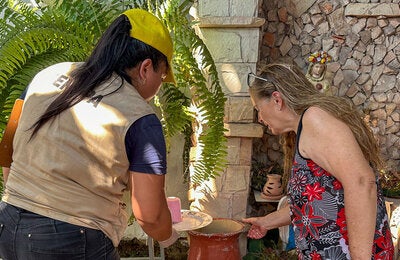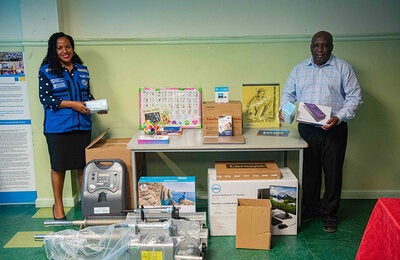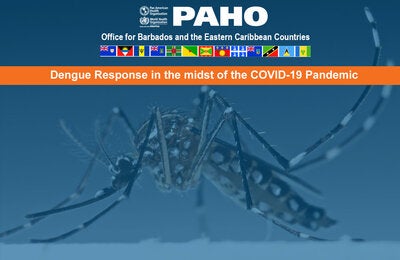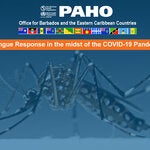Since the start of the 2020 rainy season, increased dengue activity above the seasonal threshold have been reported in some Eastern Caribbean Countries. This page provides resources on how to prevent and control the spread of dengue and news on country related activities .
Videos
Prevention and Control of Mosquito-borne disease in the context of COVID-19
What you should know about the mosquito that transmits Dengue
6 Things to know about Dengue
The Rose Hill Swat Club (message for primary school-aged children)
This video is based on a group of five friends, united in an effort to rid their community of the mosquito vector. It focuses on informing primary school-aged children on methods of prevention and control of mosquito-borne diseases through environmentally friendly and sustainable methods. The intent is that children will become ‘mini mosquito inspectors’ who will take the message home and promote throughout their communities.
Rain Barrels (Together)
In the Caribbean, rain barrels (drums) are the most common breeding sites for mosquitoes. This video set in the context of a courtship provides information on ways to manage rain barrels to prevent mosquito breeding.
What PAHO does
- PAHO/WHO provides advice and technical support for dengue prevention and control based on a regional strategy adopted by PAHO / WHO member States in 2016, called the "Strategy for arboviral disease prevention and control" (CD55.R6).
- Assist laboratories to strengthen capacities for diagnosing dengue through the conduct of training and provision of laboratory supplies
- PAHO/WHO provides support to countries in the strengthening of surveillance systems for dengue and other arboviruses.
- Technical assistance is provided to countries to adapt the 2015 WHO clinical guidelines on the management of dengue patients for use in the Americas
- Support countries to strengthen the capacity of vector control programs to effectively prevent and control outbreaks of vector-borne diseases










